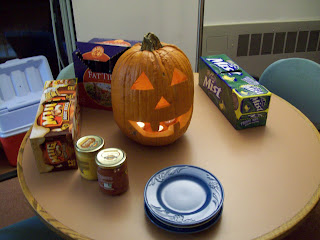Little children are often wary of wading in water which is only waist deep. They are frightened when they approach waters of which they cannot feel or even see the bottom. Adults, as well, are rightly tentative about swimming in unfamiliar waters whose depth and dangers are unknown.
Even more fearful is flowing water — water which refuses to be still, water which rushes downstream and drags along with it whatever dares to enter into it.
This is the image that the angel gives to Ezekiel. The waters of the temple of the Lord are wide, flowing and tremendous. Wherever they flow, they bring life. Whatever enters into them is bound to be swept away. Nothing these waters touch remains unchanged.
Such is the case with one’s embarking upon the path of Christ. If one loses his life for the sake of the Gospel, he cannot keep but from being swept away. Deep into the life of the church, deep into the life of the world is he immersed.
OMNIUM URBIS ET ORBIS ECCLESIARUM MATER ET CAPUT.
These words are inscribed upon the Lateran Basilica in Rome, which is the feast we celebrate this Sunday: “Head and mother of all the churches of the city and the world.” It is such because it is not only a basilica in Rome but also the cathedral of the Diocese of Rome.
The mother church
Indeed, the Lateran Basilica, handed over to the church by the emperor Constantine in the early 300s, has long been the cathedral of the mother church — the mother diocese — of the whole world.
This one building represents for us the temple of the Lord. From it flow the life-giving waters, the gift of baptism and all the sacraments.  Each of the sacraments provides us with the source from which we can receive the regeneration, refreshment and renewal needed to live the Christian life.
Each of the sacraments provides us with the source from which we can receive the regeneration, refreshment and renewal needed to live the Christian life.
Indeed, sometimes the Lord’s temple can become a place filled with waste. As temples of the Holy Spirit, even our own bodies, our own lives can become weighted down, filthy and poisonous. In its members the church can become stagnant and lifeless, like the Dead Sea.
Yet the Lord always returns. He enters the temple to purify it. Jesus’ zeal for the Lord’s house is also his zeal for our souls. He pours out the life-giving waters which cleanse us of all that is dead. He purifies us with his grace which is always available to us in his church.
In celebrating the feast of the Basilica of St. John Lateran, we turn to our head and mother of the church universal. Living in his church, how can we help but be swept up and washed clean by the flood of his very own life, poured out into us? Listening to his word, receiving the sacraments and remaining faithful to his teaching we are refreshed, washed clean and made his dwelling, the temple of the Lord.
 It's a new day and a new year! Today, the Church begins a new year.
It's a new day and a new year! Today, the Church begins a new year.  As Catholics, we start things off with a bang; at the beginning of our new year: Advent and Christmas!
As Catholics, we start things off with a bang; at the beginning of our new year: Advent and Christmas!

























